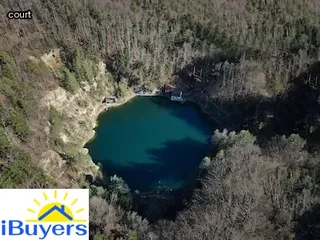Probate is a complex and time-consuming process, but understanding the basics can help make it less overwhelming. Probate is a legal process that takes place after an individual has passed away.
It involves validating the deceased's will (if there is one), paying off debts, distributing assets to beneficiaries, and other administrative tasks. In North Carolina, certain assets—such as life insurance proceeds, retirement accounts, and joint tenancy properties—are not subject to probate and can be transferred directly to their designated recipients.
When deciding how to transfer real estate in probate cases, North Carolina law requires that the property be distributed according to its title or deed holder’s wishes. It must also adhere to the state's laws regarding inheritance taxes and other related issues.
There are several options available when it comes to handling probate in North Carolina; these include court-supervised administration or informal administration through small estates proceedings. Understanding the basics of probate is critical for navigating North Carolina's real estate laws effectively.

Executors and administrators are responsible for managing the estate of a deceased individual in accordance with the laws of North Carolina. These roles may involve paying bills, collecting assets, filing taxes, transferring ownership of property, and distributing the estate to beneficiaries.
Executors are appointed by a will or court order, while administrators are appointed when there is no will or if the executor is unable to serve. Depending on the circumstances, an executor or administrator may be an individual or an institution such as a bank.
In either case, they must identify and inventory all assets in the estate and manage them according to state law. With respect to real estate transactions, executors and administrators must ensure that title transfer is valid and follows legal procedures.
It's important for these parties to familiarize themselves with North Carolina probate and real estate regulations so that they can fulfill their duties in a timely manner.
When it comes to navigating North Carolina probate and real estate laws, assets that are subject to probate must be taken into account. In North Carolina, assets such as a decedent’s real estate, stocks, bonds, bank accounts, vehicles, and other tangible personal property may all be subject to the state’s probate laws.
If the decedent left a will or trust in place at the time of death, then those documents can provide detailed information about what assets are subject to probate. Furthermore, if there is no will or trust in place at the time of death then any assets owned by the decedent that have a designated beneficiary will pass outside of probate.
To get an accurate understanding of what assets are subject to probate it is important to consult with an experienced attorney who can offer guidance on how best to proceed with settling the estate.

In North Carolina, probate is necessary when a deceased individual's estate requires the court to settle it. Probate is a legal process that ensures all debts of the deceased are paid before any other distributions are made.
In North Carolina, probate must be administered if the total value of the estate exceeds $20,000 and the decedent did not have an effective will or trust in place. If there is no will or trust present, then a court-appointed administrator will handle all aspects of settling the estate.
If a valid will exists, then that document will determine how assets and liabilities should be distributed among heirs. Furthermore, if any real estate is involved in probate proceedings, then these matters must be settled through the court as well.
Navigating North Carolina's probate and real estate laws can be complicated for those unfamiliar with these processes; however, having a comprehensive guide available can help make this process easier to understand and manage.
Navigating North Carolina probate and real estate laws can be challenging, especially when it comes to understanding how probate affects real estate transactions. In many cases, legal heirs or beneficiaries are required to transfer title of a property through the court-supervised probate process by filing a petition for the transfer.
This may involve proving that the deceased had valid title to the property in question, as well as providing evidence that all creditors have been paid and any taxes due have been settled. During the probate process, an executor is appointed to oversee settling debts, distributing assets and transferring ownership of real estate from the deceased’s name into their heirs’ names.
In addition, if there is no will or other written instructions regarding who should inherit the property, North Carolina law requires that an administrator manage the estate and transfer title according to state intestacy statutes. It is important to note that this process can take several months depending on circumstances such as disputes over ownership rights or difficulty locating heirs.
Furthermore, if multiple parties are involved in inheriting a piece of property, it could require additional steps such as having each party sign a quitclaim deed in order for one party to take full ownership of the property.

A probate attorney plays a critical role in navigating North Carolina's complex probate and real estate laws. They are knowledgeable in the state's code of law and can advise their clients on matters such as preparing a will, creating an estate plan, and settling any disputes that may arise.
Probate attorneys also work to ensure that any assets or property owned by the deceased are distributed according to their wishes. Furthermore, these legal professionals provide invaluable guidance when it comes to navigating the often confusing paperwork associated with selling or transferring real estate.
The expertise of a probate attorney can be instrumental in helping individuals and families understand how best to manage their financial affairs.
An affidavit is a sworn statement that someone provides under oath. It is used to validate a claim in court for personal property.
This document can provide evidence of ownership and legal rights, such as inheritance or bequest. An affidavit is important because it serves as an official record that can be accepted by the court.
The affidavit must include all pertinent facts regarding the asset in question and must be signed by both parties involved in the dispute. In North Carolina, affidavits are commonly used when claiming personal property through probate and real estate laws, as they provide a clear path to establishing ownership rights and resolving disputes over who has rightful possession.
When navigating North Carolina's probate and real estate laws, understanding how affidavits work and why they are important will allow you to make informed decisions regarding your personal property claims.

Navigating North Carolina probate and real estate laws can be a complex and time-consuming process for those unfamiliar with the legal system. To help simplify the process, it is important to familiarize yourself with the timeline for completing the probate process in North Carolina.
Generally speaking, the entire probate process can take anywhere from several weeks to several months depending on the size of the estate and whether any issues arise along the way. The first step to completing this process is to open a probate case with a local court, which involves filing paperwork and paying applicable fees.
After that, notice of the case must be sent out to all interested parties such as creditors or beneficiaries. Next, an inventory of assets must be taken and tax returns must be filed.
Following these steps will help ensure that all debts are paid and assets are distributed appropriately according to state law. Lastly, once all obligations have been handled, a final accounting of what remains in the estate is submitted and approved by a judge before distribution of assets can occur.
Understanding this timeline will help make navigating North Carolina's probate laws much easier.
Navigating probate and real estate laws in North Carolina can be difficult to understand, but with the right guidance, selling property from a will doesn't have to be so challenging. It is important to ensure that all legal requirements and paperwork are taken care of before any sale can be completed.
Estate executors must adhere to state regulations related to taxes, transfer of ownership, and other procedures associated with the sale of a property. In addition, there may be certain restrictions imposed by the will if it was drafted prior to North Carolina's adoption of the Uniform Probate Code in 2010.
Above all else, it is essential for executors to maintain open communication with heirs throughout the entire process in order to reduce conflict over how assets are being managed or distributed. Furthermore, if there is disagreement among family members about who should receive what portion of the estate, court approval may be necessary before any further action can take place.
As long as all parties involved take their time and consult an experienced attorney when needed, they can feel confident that they have met their legal obligations while still protecting the interests of everyone involved in the transaction.

Navigating North Carolina probate and real estate laws can be a daunting task for executors, but with the right guidance, it doesn’t have to be. Marshaling assets is an important step in the process of settling an estate, and executors should take the time to understand their responsibilities.
In general, an executor must identify all assets belonging to the deceased person, including those located outside North Carolina. Additionally, any debts owed by the deceased must be paid off using available funds from the estate before distributing assets among beneficiaries.
Furthermore, when marshaling assets, executors should make sure that everything is properly documented and accounted for as this will help protect them against any potential legal claims down the line. Lastly, it's also a good idea to consult with a probate lawyer or other knowledgeable professional who can provide assistance with navigating any complicated legal questions that may arise throughout the process.
With this comprehensive guide on hand, executors will have all they need to confidently manage an estate in accordance with North Carolina law.
Working with a professional on probate matters in North Carolina can be extremely beneficial for navigating the complex and often confusing laws that govern real estate ownership and inheritance. A professional can make sure that all parties involved understand their rights and obligations, as well as ensure that documents are properly completed and filed.
They can also provide guidance to executors of estates regarding asset distributions, debt repayment obligations, and any other issues related to the process. Furthermore, having the support of a professional during the probate process can help reduce stress for those involved by providing them with assistance in understanding their legal responsibilities.
Additionally, a professional can help represent individuals who may not have the financial resources available to hire an attorney. Ultimately, working with a knowledgeable professional provides peace of mind knowing that everything is being handled correctly according to North Carolina's probate and real estate laws.

Experienced attorneys who have handled complex probates in North Carolina can provide helpful advice on navigating the state's probate and real estate laws. Understanding the complexities of the law is essential to making sound decisions regarding property ownership, inheritance, and other related issues.
It's important to choose an attorney who has a thorough knowledge of North Carolina's legal system and can guide you through the process confidently. They should be able to explain all relevant aspects of probate and real estate law, as well as how those laws may affect you or your beneficiaries.
Furthermore, having a knowledgeable attorney will ensure that any wills or trusts established are properly drafted and executed, which can save time and money in the long run. With their experience and expertise, these attorneys can provide practical advice for navigating North Carolina's probate and real estate laws with confidence.
Navigating North Carolina's probate and real estate laws can be a daunting task, especially when unfamiliar with the intricacies of the law. In this guide, we will address some of the common questions that come up around North Carolina’s probate laws to help make sense of them.
With a better understanding of these topics, people can feel more confident when navigating the legal process. How do you determine who inherits assets after someone passes away? What is required for an individual to obtain guardianship over another person? Are there certain restrictions around selling inherited property? These are all important questions that need answers when dealing with probate and real estate laws in North Carolina.
Additionally, what kind of taxes must be paid on real estate transactions? How do you protect yourself from potential lawsuits down the road? Considerations like these should factor into any decision making processes related to probate or real estate transactions. Knowing more about the applicable laws and regulations can help make sure everything is done lawfully and properly.

When selling real estate through probate, there are a variety of documents that must be obtained in order to complete the process.
Depending on the specific circumstances of the property and its owner, these may include a death certificate, an affidavit of heirship, an estate inventory list, a will or trust document, a deed or title search report, an authorization to administer the estate form, and other necessary paperwork.
It is important to understand North Carolina probate and real estate law in order to ensure that all relevant documents are acquired prior to initiating a sale.
Additionally, consulting with an attorney who is knowledgeable about North Carolina probate law can help streamline the process and simplify any legal procedures that need to be followed.
When dealing with North Carolina probate and real estate laws, it is important to understand the different types of wills that can be used and how they affect the probate process. A common type of will is a testamentary will, which is a document that allows an individual to make decisions about their estate after they pass away.
This type of will must be in writing and signed by at least two witnesses, as well as being notarized or otherwise authenticated. Another type of will is a revocable living trust, which allows someone to transfer certain assets into a trust while they are still alive so that those assets can bypass the lengthy probate process when they die.
Furthermore, there are certain other types of wills such as pour-over wills and joint tenancy with right of survivorship (JTWROS) that may also impact the probate process. It is essential for individuals to understand these different types of wills and how they could affect their estate plan; this comprehensive guide can provide everyone with information on navigating North Carolina probate and real estate laws.

Navigating disputes during the distribution of assets after death can be a challenging and emotional process, especially in North Carolina where probate and real estate laws vary from state to state. It is important to know and understand these laws to ensure that any issues or disputes are handled properly and in accordance with legal requirements.
An experienced attorney can help review documents, advise on the best course of action, and represent clients throughout the dispute resolution process. Understanding North Carolina's probate laws is key for ensuring that assets are distributed according to the wishes of the deceased.
When it comes to real estate law, there may be additional complexities depending on whether the property is owned jointly or individually. Having an understanding of these laws will help ensure that beneficiaries receive their fair share when it comes time to divide assets or settle any potential disputes.
It is also important to consider any tax implications that may arise as a result of inherited assets or property division. Lastly, having a comprehensive guide such as Navigating North Carolina Probate And Real Estate Laws can provide helpful information on navigating these disputes in an efficient manner so families can focus on healing during this difficult time.
When navigating North Carolina probate and real estate laws, it is important to understand the best practices for dealing with creditors during the settlement process. One key step should be to identify all potential creditors and inform them of the deceased's passing.
This helps ensure that all known debts are addressed and can help avoid any surprises or conflicts that could arise down the line. Additionally, it is important to review all of the deceased's financial records for accuracy and completeness in order to estimate any remaining liabilities.
Furthermore, creditors should be notified of their status in a timely and professional manner to minimize the risk of future disputes. Lastly, keeping detailed records throughout the entire process will help protect both heirs and executors from any unnecessary legal issues that could arise due to negligence or mismanagement.
In North Carolina, real property must go through probate when a person passes away or is otherwise unable to manage their own affairs. The law requires that the legal owner of the property be identified and all debts, taxes, and other liabilities associated with the estate be satisfied before any remaining assets are distributed to beneficiaries.
In some cases, real property may not have to go through the probate process if it is owned jointly by two or more people with rights of survivorship. Additionally, certain types of trusts can also bypass probate in North Carolina.
However, navigating these laws can be tricky, so it's important to consult with an attorney who specializes in North Carolina probate and real estate laws for comprehensive guidance.

Yes, estates in North Carolina typically must go through probate. Probate is the process of settling an estate, including distributing assets and paying off debts according to a deceased person's will or state law.
In North Carolina, if the value of the decedent's estate is less than $50,000 and there are no real estate properties, then it may not be necessary for the estate to go through probate. However, if the decedent held real estate property or had assets totaling over $50,000 at the time of his or her death, then probate is likely required in order to settle the estate properly.
Real Estate Property in North Carolina that is transferred after a death must follow certain legal steps before it can be transferred to its rightful owner. The executor of an estate must typically contact a probate lawyer who can help guide them through filing all required documents with the court such as opening a probate case, filing an inventory of assets and liabilities, proving ownership of real estate property and more.
Therefore, navigating North Carolina Probate and Real Estate Laws is essential for settling an estate correctly and efficiently.
Yes, a house can be sold while in probate in North Carolina. The process of selling real estate during a probate proceeding is governed by the North Carolina Probate and Real Estate Laws which provide for the orderly transfer of property from one individual to another.
In order to successfully complete the sale, it is important to understand the applicable laws and procedures related to probate and real estate transactions. This comprehensive guide will provide an overview of how to navigate North Carolina law when selling a house during a probate proceeding.
It will cover topics such as how to determine if a property is subject to probate, how to obtain court approval for the sale, what paperwork is necessary for a successful transaction, and other relevant considerations. With this valuable information, you can confidently ensure that your rights are protected and that the sale of your home goes smoothly.
If you are looking to avoid probate in real estate transactions in North Carolina, there are several steps you can take. First, if you have a will or trust, make sure it is properly funded with your real estate assets.
Secondly, consider passing title to your real estate by way of joint tenancy with right of survivorship or transfer-on-death deed. Lastly, look into beneficiary deeds and life estates as an option for avoiding probate in North Carolina.
These methods can help you navigate the complex laws and regulations of North Carolina’s probate and real estate systems while ensuring that your property passes to your heirs as smoothly as possible.
A: A Devisee is an individual or entity named in a Last Will and Testament to receive real estate from the Probated estate of a deceased person. In some cases, this property may be transferred to a Testamentary Trust for the benefit of the Devisee.